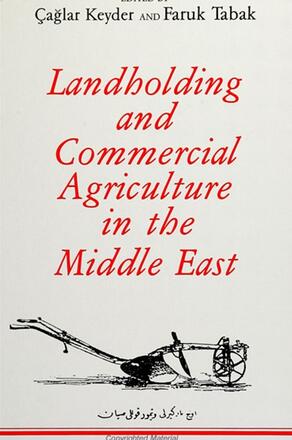
Landholding and Commercial Agriculture in the Middle East
Alternative formats available from:
Description
This book traces the evolution of Ottoman agriculture from commercialization of the rural peasant households into global networks of production and trade. It re-evaluates the significance attached to large-scale agricultural units as catalysts of this transformation, and assesses structures of authority and control invested in large landlords, local notables, and the rural producers. The essays in this volume offer different perspectives on the transformation of an important agrarian society in the Middle East.
At the State University of New York at Binghamton, Çağlar Keyder is Associate Professor of Sociology and Faruk Tabak is Research Associate at the Fernand Braudel Center.
Reviews
"This is an important work. It deals with a crucial topic in modern Middle Eastern history from many different perspectives. The transformation of the Ottoman economy to commercial agriculture is important both in itself and what it tells us about the social and political changes occurring in the Middle East in the nineteenth century. The combination of perspectives and the faithfulness with which all the authors stick to the central topic give the work an internal integrity which in turn provides a great deal of cumulative insight into the transformation of Ottoman agricultural society and economy. " — Bruce Masters, Wesleyan University